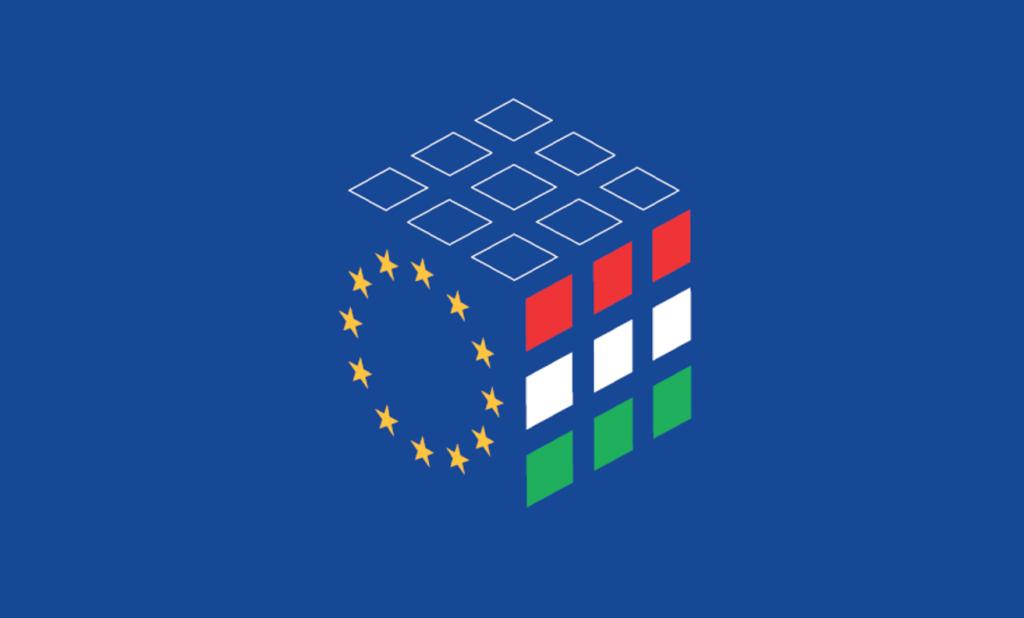EUSPA welcomes the Hungarian Presidency of the Council of the European Union

One of the many things that make Europe great already is the EU Space Programme.
“A case study in the benefits of European cooperation, the EU Space Programme was designed to boost European competitiveness and address a range of pan-European priorities,” says EUSPA Executive Director Rodrigo da Costa.
Amongst those priorities are the ones set by the Hungarian Presidency of the Council of the European Union.
Take for example the adoption of a New European Competitiveness Deal. A key priority of the Hungarian presidency, the Deal aims to restore economic development and create conditions for sustainable growth, deepen the internal market, and focus on supporting small and medium-sized enterprises (SMEs). It also looks to promote the green and digital transitions in partnership with European economic stakeholders and citizens, international cooperation and ensure the stability and sustainability of jobs.
EU Space ticks all the boxes.
According to EUSPA’s latest EO & GNSS Market Report, the EU Space market is growing – and growing fast. In fact, GNSS and Earth Observation combined global revenues are set to increase from more than EUR 260 billion in 2023 to nearly EUR 590 billion by 2033. Meanwhile, the demand for Secure SATCOM services is expected to grow by a factor of 14 over the 2025–2040 period, to reach almost 190 Gbps in 2040.
“This market growth is great news for the EU, whose economic recovery and resilience stands to benefit from the market adoption of EU Space technologies,” adds da Costa. “It’s also good news for citizens and businesses, both of whom increasingly rely on space-based data and services.”
Helping drive this market growth is EUSPA.
From supporting SMEs to delivering on the Green Deal
At the heart of EUSPA’s work is a commitment to support an innovative and competitive EU space sector, ensuring that space continues to drive innovation-based growth in Europe and deliver services and applications that meet the challenges of both today and tomorrow.
Whether it be through funding mechanisms, competitions, market insights or business support, more than 1000 companies from across Europe have received support from EUSPA. As a result, EUSPA has not only built a sizeable ecosystem of start-ups and SMEs, but also a robust downstream space application market, one that enables such European objectives as the EU Green Deal.
Here, Galileo, EGNOS and Copernicus deliver key data and information to support everything from selecting the best location for building renewable energy infrastructure to implementing the most fuel-efficient flight paths, monitoring CO2 emissions, and designing efficient and autonomous transportation networks – to name but a few of the many ways EU Space benefits the green transition.
From space to farm: how EU Space increases crop yields
EU Space also plays a vital role in increasing agricultural yields to sustainably feed a growing population – which touches upon another priority of the Hungarian Presidency: A Farmer-Centred EU Agricultural Policy.
For instance, it can leverage Copernicus data, together with field surveys, to help monitor crop seasons and quantify the areas to be planted and, later, harvested. In addition, it can use GNSS and Earth Observation data to determine where to apply fertilisers and pesticides, thereby reducing their use by as much as 20% while increasing yields by more than 10%.
Galileo and Copernicus data are also behind such key operational tools as farm machinery guidance, precision irrigation and variable rate application. All these tools increase the productivity of agricultural cultivation by supporting informed management processes and optimising the use of land, seeds, plant protection agents and water.
EU Space helps secure Europe’s borders
Two other priorities of the Hungarian presidency where EU Space will play an important role include stemming illegal migration and reinforcing Europe’s defence policy. As to the former, GOVSATCOM will allow the EU to enhance surveillance, including border and maritime surveillance and the surveillance of illegal trafficking.
The Copernicus service for security applications also plays a border surveillance role. Its main objectives are to reduce the death toll of illegal immigrants arriving by sea while also increasing the EU’s internal security and mitigating cross-border crime. The service is operated by the European Border and Coast Guard Agency (FRONTEX) and provides the external border surveillance information exchange network (EUROSUR) with near real time data on activity happening around the EU’s land and sea borders.
As to reinforcing Europe’s defence policy, EUSPA plays a critical part in the EU Space Strategy for Security and Defence (EUSSD). Adopted in 2023, the EUSSD identifies space, together with cyber and maritime, as contested strategic domains, the security of which must be ensured. As the security gatekeeper of the EU Space Programme, EUSPA is responsible for ensuring the confidentiality, integrity and availability of the data and services the programme provides.
By Europe, for Europe
Whether it be boosting Europe’s competitiveness, mitigating the effects of climate change, supporting sustainable agriculture, or protecting citizens from security threats, behind many European priorities is EU Space.
“At its heart, the EU Space Programme is a European Union programme built by Europe, for all, and we look forward to working with the Hungarian presidency to ensure that this great programme continues to be used for the benefit of all Europeans,” concludes da Costa.
Media note: This feature can be republished without charge provided the European Union Agency for the Space Programme (EUSPA) is acknowledged as the source at the top or the bottom of the story. You must request permission before you use any of the photographs on the site. If you republish, we would be grateful if you could link back to the EUSPA website (http://www.euspa.europa.eu).